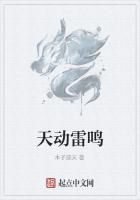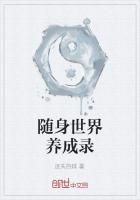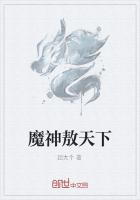Prologue A number of persons of the noble country of Touraine, considerably edified by the warm search which the author is ****** into the antiquities, adventures, good jokes, and pretty tales of that blessed land, and believing for certain that he should know everything, have asked him (after drinking with him of course understood), if he had discovered the etymological reason, concerning which all the ladies of the town are so curious, and from which a certain street in Tours is called the Rue Chaude. By him it was replied, that he was much astonished to see that the ancient inhabitants had forgotten the great number of convents situated in this street, where the severe continence of the monks and nuns might have caused the walls to be made so hot that some woman of position should increase in size from walking too slowly along them to vespers. A troublesome fellow, wishing to appear learned, declared that formerly all the scandalmongers of the neighbourhood were wont to meet in this place.
Another entangled himself in the minute suffrages of science, and poured forth golden words without being understood, qualifying words, harmonising the melodies of the ancient and modern, congregating customs, distilling verbs, alchemising all languages since the Deluge, of the Hebrew, Chaldeans, Egyptians, Greeks, Latins, and of Turnus, the ancient founder of Tours; and the good man finished by declaring that chaude or chaulde with the exception of the H and the L, came from Cauda, and that there was a tail in the affair, but the ladies only understood the end of it. An old man observed that in this same place was formerly a source of thermal water, of which his great great grandfather had drunk. In short, in less time than it takes a fly to embrace its sweetheart, there had been a pocketful of etymologies, in which the truth of the matter had been less easily found than a louse in the filthy beard of a Capuchin friar. But a man well learned and well informed, through having left his footprint in many monasteries, consumed much midnight oil, and manured his brain with many a volume--himself more encumbered with pieces, dyptic fragments, boxes, charters, and registers concerning the history of Touraine than is a gleaner with stalks of straw in the month of August--this man, old, infirm, and gouty, who had been drinking in his corner without saying a word, smiled the smile of a wise man and knitted his brows, the said smile finally resolving itself into a pish! well articulated, which the Author heard and understood it to be big with an adventure historically good, the delights of which he would be able to unfold in this sweet collection.
To be brief, on the morrow this gouty old fellow said to him, "By your poem, which is called 'The Venial Sin,' you have forever gained my esteem, because everything therein is true from head to foot--which I believe to be a precious superabundance in such matters. But doubtless you do not know what became of the Moor placed in religion by the said knight, Bruyn de la Roche-Corbon. I know very well. Now if this etymology of the street harass you, and also the Egyptian nun, I will lend you a curious and antique parchment, found by me in the Olim of the episcopal palace, of which the libraries were a little knocked about at a period when none of us knew if he would have the pleasure of his head's society on the morrow. Now will not this yield you a perfect contentment?"
"Good!" said the author.
Then this worthy collector of truths gave certain rare and dusty parchments to the author, the which he has, not without great labour, translated into French, and which were fragments of a most ancient ecclesiastical process. He has believed that nothing would be more amusing than the actual resurrection of this antique affair, wherein shines forth the illiterate simplicity of the good old times. Now, then, give ear. This is the order in which were the manuscripts, of which the author has made use in his own fashion, because the language was devilishly difficult.
I
WHAT THE SUCCUBUS WAS.
/In nomine Patris, et Filii, et Spiritus Sancti. Amen./
In the year of our Lord, one thousand two hundred and seventy-one, before me, Hierome Cornille, grand inquisitor and ecclesiastical judge (thereto commissioned by the members of the chapter of Saint Maurice, the cathedral of Tours, having of this deliberated in the presence of our Lord Jean de Montsoreau, archbishop--namely, the grievances and complaints of the inhabitants of the said town, whose request is here subjoined), have appeared certain noblemen, citizens, and inhabitants of the diocese, who have stated the following facts concerning a demon suspected of having taken the features of a woman, who has much afflicted the minds of the diocese, and is at present a prisoner in the jail of the chapter; and in order to arrive at the truth of the said charge we have opened the present court, this Monday, the eleventh day of December, after mass, to communicate the evidence of each witness to the said demon, to interrogate her upon the said crimes to her imputed, and to judge her according to the laws enforced /contra demonios/.
In this inquiry has assisted me to write the evidence therein given, Guillaume Tournebouche, rubrican of the chapter, a learned man.
Firstly has come before us one Jehan, surnamed Tortebras, a citizen of Tours, keeping by licence the hostelry of La Cigoyne, situated on the Place du Pont, and who has sworn by the salvation of his soul, his hand upon the holy Evangelists, to state no other thing than that which by himself hath been seen and heard.















